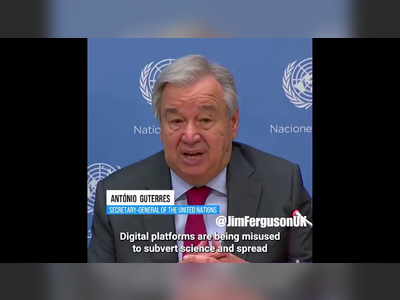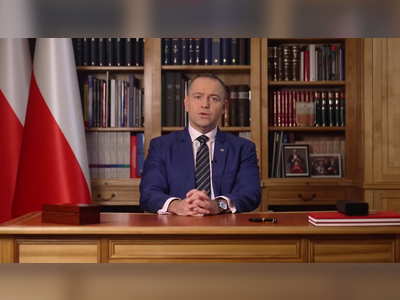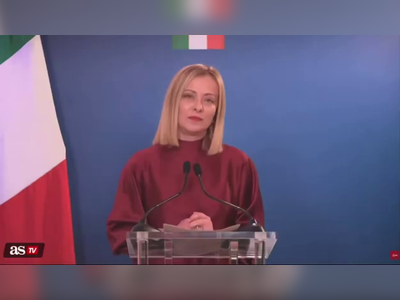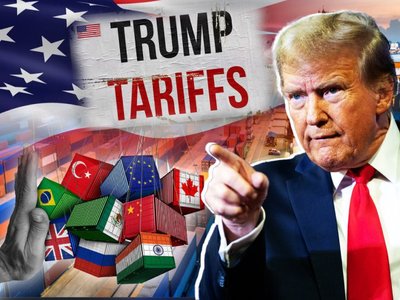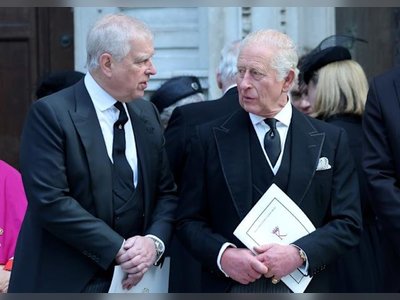Deadlock in the House: Trump's Influence and the Looming Government Shutdown
Political maneuvering intensifies as former President Trump's legacy challenges fiscal policies and reveals deep divides in American governance.
This week, the political winds in Washington carried an unnerving chill as the U.S. House of Representatives blocked a measure intended to stave off a looming government shutdown.
At the core of this controversial decision is the enduring influence of former President Donald Trump, prompting a critical exploration of whether this is a strategic gambit to worry about or simply another chapter in the perennial chess game of American politics.
On one level, the decision can be seen as a reaffirmation of fiscal conservatism, prioritizing the reduction of superfluous government expenditure.
However, utilizing a government shutdown as a tactic to accomplish such goals remains contentious.
Historical precedents illustrate its limitations; the 2018 shutdown, for instance, inflicted economic costs running into billions without securing its primary aims.
The ramifications of a shutdown extend beyond economic metrics, underscoring real human costs.
Federal employees face the prospect of missed paychecks, and critical public services risk coming to a standstill.
Critics compare this strategy to employing a sledgehammer to crack a nut, echoing the sentiment that the fallout can be disproportionate to the intended outcome.
There are those, however, who assert that such drastic measures can catalyze bipartisan negotiations.
Trump's divisive, yet attention-grabbing approach, focuses on energizing his base with a fervor reminiscent of his presidency.
This method is captivatingly strategic, but questions emerge regarding its adaptability within today's shifting political climate.
As public trust continues to erode, this base-centric strategy risks alienating crucial centrist voters required to sway the balance in elections.
If the ultimate aim is durable governance, embracing methods that honor both principle and bipartisan negotiation appears more sustainable.
The broader historical context cannot be overlooked; maneuvers reminiscent of the 1995 shutdown orchestrated by Newt Gingrich expose how such tactics can erode public confidence in governance over time.
The fundamental question demands consideration: Are these political disruptions justified by the reforms they might usher in, or do they erode the foundations of democratic stability?
In democratic regimes, the commitment to compromise should not be underestimated.
The capacity to govern encompasses the responsibility and mastery of negotiation, a skill underlined by a balanced acknowledgment of both firm principles and open bipartisanship.
The Trump era undoubtedly challenged these boundaries, leaving future generations the task of discerning if these strategies were visionary or simply incendiary.
What remains is a complex tapestry of motives, consequences, and the pressing need for engaged civic participation, urging accountability in government.
In times fraught with uncertainty, perhaps it is worth recalling Theodore Roosevelt's wisdom: 'In any moment of decision, the best thing you can do is the right thing.
The worst thing you can do is nothing.' Today, more than ever, the clarion call for decisiveness and accountability resonates across the spectrum of American political life.
At the core of this controversial decision is the enduring influence of former President Donald Trump, prompting a critical exploration of whether this is a strategic gambit to worry about or simply another chapter in the perennial chess game of American politics.
On one level, the decision can be seen as a reaffirmation of fiscal conservatism, prioritizing the reduction of superfluous government expenditure.
However, utilizing a government shutdown as a tactic to accomplish such goals remains contentious.
Historical precedents illustrate its limitations; the 2018 shutdown, for instance, inflicted economic costs running into billions without securing its primary aims.
The ramifications of a shutdown extend beyond economic metrics, underscoring real human costs.
Federal employees face the prospect of missed paychecks, and critical public services risk coming to a standstill.
Critics compare this strategy to employing a sledgehammer to crack a nut, echoing the sentiment that the fallout can be disproportionate to the intended outcome.
There are those, however, who assert that such drastic measures can catalyze bipartisan negotiations.
Trump's divisive, yet attention-grabbing approach, focuses on energizing his base with a fervor reminiscent of his presidency.
This method is captivatingly strategic, but questions emerge regarding its adaptability within today's shifting political climate.
As public trust continues to erode, this base-centric strategy risks alienating crucial centrist voters required to sway the balance in elections.
If the ultimate aim is durable governance, embracing methods that honor both principle and bipartisan negotiation appears more sustainable.
The broader historical context cannot be overlooked; maneuvers reminiscent of the 1995 shutdown orchestrated by Newt Gingrich expose how such tactics can erode public confidence in governance over time.
The fundamental question demands consideration: Are these political disruptions justified by the reforms they might usher in, or do they erode the foundations of democratic stability?
In democratic regimes, the commitment to compromise should not be underestimated.
The capacity to govern encompasses the responsibility and mastery of negotiation, a skill underlined by a balanced acknowledgment of both firm principles and open bipartisanship.
The Trump era undoubtedly challenged these boundaries, leaving future generations the task of discerning if these strategies were visionary or simply incendiary.
What remains is a complex tapestry of motives, consequences, and the pressing need for engaged civic participation, urging accountability in government.
In times fraught with uncertainty, perhaps it is worth recalling Theodore Roosevelt's wisdom: 'In any moment of decision, the best thing you can do is the right thing.
The worst thing you can do is nothing.' Today, more than ever, the clarion call for decisiveness and accountability resonates across the spectrum of American political life.


